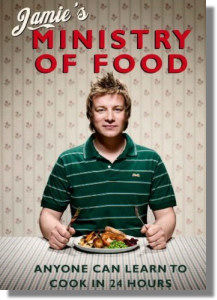Amy and I both had an idiosyncratic experience in Melbourne over the weekend while celebrating Sorenne’s sixth birthday: we read a newspaper.
On the cover of the Saturday magazine was a fawning piece about chef Heston Blumenthal, who is packing up his famed Fat Duck restaurant and moving it to Melbourne for six months, while the UK location undergoes renovations.
Amy read the piece and said, “I know why he made those 550 people sick at The Fat Duck: he has no training and only four weeks of restaurant experience before opening The Fat Duck.”
Unsurprisingly, the piece doesn’t mention that nasty outbreak of Norovirus that sickened 529 at the Fat Duck, which only seats some 40 people a night, so the virus was circulating between staff and patrons and back again.
A report by the UK Health Protection Agency concluded that Norovirus was probably introduced at the restaurant through contaminated shellfish, including oysters that were served raw and razor clams that may not have been appropriately handled or cooked.
Investigators identified several weaknesses in procedures at the restaurant may have contributed to ongoing transmission including: delayed response to the incident, the use of inappropriate environmental cleaning products, and staff working when ill. Up to 16 of the restaurant’s food handlers were reportedly working with Norovirus symptoms before it was voluntarily closed
Heston shills for Coles, Jamie Oliver shils for Woolworths, and both suck at food safety.
Why does Australia have to rely on overrated Brits for food porn?
So in Feb. 2015, when Blumenthal will leave his British power base and bring his beloved Duck, including almost its entire staff to, of all places, Melbourne’s Crown Casino, I won’t be attending.
The restaurant is being built here, and will operate for six months (while the English Fat Duck building is renovated). Then, when it closes, a second Dinner by Heston Blumenthal restaurant on the same site will remain permanently in Melbourne.


 seven premises, issued 126 fines and made 1149 improvement orders for breaches of the Food Act.
seven premises, issued 126 fines and made 1149 improvement orders for breaches of the Food Act..jpg) of written warnings and improvement notices issued jumping from 225 to 833 over the past two financial years, although of complaints from the public remained steady at about 65 a year.
of written warnings and improvement notices issued jumping from 225 to 833 over the past two financial years, although of complaints from the public remained steady at about 65 a year. For some faiths, like creationism, biology don’t matter much.
For some faiths, like creationism, biology don’t matter much.